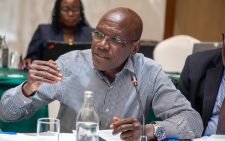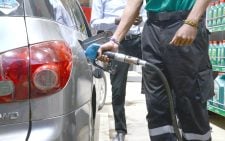UN agency advocates debt relief for Africa

International lenders have been challenged to either write off Africa’s ballooning debts or charge fair interest rates so that countries in the continent can find money to invest in social services like health and education.
Speaking in Nairobi yesterday, UN Conference on Trade and Development (UNCTAD) Secretary-General Rebeca Grynspan lamented that African countries were being charged as much as eight times more for loans compared to their European counterparts.
“We advocate for debt relief to offer African countries fiscal space to invest in strengthening their supply chains,” Grynspan said when she presided over the launch of the UN agency’s report titled “The Potential of Africa to Capture Technology-Intensive Global Supply Chains”.
“African countries pay four times more than the US and eight times more than European countries (for similar loans). This must change if Africa is to achieve its full economic potential,” she said.
According to her, President William Ruto is among African leaders who have been championing a change in this asymmetry in the global financial markets that have conspired to make the continent poor. “Right now, 3.3 billion people live in (African) countries that are paying more to service the debts than what they are investing in education or health,” Grynspan said. “So how are we going to achieve the sustainable development goals if we cannot spend on health and education, the basic needs of the people, in an appropriate manner because of the effect of debt servicing?”
In his message endorsing the report, President Ruto called for sustainable financing options for African countries to lift off economically.
“Viable tech-enabled services and sustainable financial options such as supply chain finance can… increase Africa’s participation in global supply chains and trade,” he said.
UNCTAD, in the report, has also challenged African countries to position themselves as exporters of value-added products — particularly metals — to increase their contribution to global trade. This will reduce the export of bulky, low value initial extracts — such as ore — by ensuring that refining of the raw products is done within the continent.
“For African economies to benefit from supply chain diversification, it is important to manage existing supply chain vulnerabilities effectively,” says the report titled ‘The Potential of Africa to Capture Technology-Intensive Global Supply Chains’.
The report notes that many African countries have failed to diversify their economies and, as a result, they remain highly vulnerable to global shocks, such as those caused by Covid-19 between 2019 and 2021.
UNCTAD has also challenged global companies to set up production processes in Africa to add value to raw materials such as cobalt and titanium, which are used in the automobile and aircraft industries mainly to make alloys or as ingredients in the manufacture of paints.
Potential destination
“In 2022, the Democratic Republic of Congo had the largest production of copper in Africa, 1.8 million tonnes. But beyond exploration and extraction, the country is a potential destination for refining metal products, which would lower the costs of transporting bulky, low-value initial extracts,” the report says.
And as the world grapples with the effects of climate change and business leaders wrestle with the question of how to mitigate the challenge, UNCTAD has said that Africa has a window of opportunity to go green in its supply chains and contribute to the reduction of companies’ carbon footprints.
“For instance, the green hydrogen potential of Africa opens up opportunities for decarbonising supply chains,” the agency said, noting the capacity of such interventions to reduce greenhouse gas emissions.
This is important for countries like Kenya, which are already exploring opportunities for partnerships on the sale of hydrogen to Germany, following the visit of German Chancellor Olaf Scholz to Kenya in May.
One of the highlights of his tour was a visit to the OlKaria geothermal fields in Naivasha, which has a large potential to produce hydrogen, a key ingredient in the production of fuel and fertilizer.
With the tensions between the European Union on the one hand and Russia on the other, Germany will be keen to find alternative sources of energy given that the EU has discontinued the purchase of natural gas from Russia.
The disruption of that supply chain, therefore, opens an opportunity for Kenya to enter new supply contracts with Germany and other EU countries, which require fuel for domestic use during winter seasons.
Africa also has an unrivalled capacity to supply the metals needed in the manufacture of mobile phones. In 2022 alone, more than 1.2 billion mobile phones were shipped globally, underlining the importance of Africa to plug into that supply chain as a leading source of the raw materials that drive that industry.
“The continent has large reserves of cobalt, copper, graphite, lithium, manganese and nickel, which are used in the production of telephone batteries, circuit boards and other components,” the report says. “The abundance of these resources also provides vast opportunity for strengthening regional supply chains in mobile phone production.”












